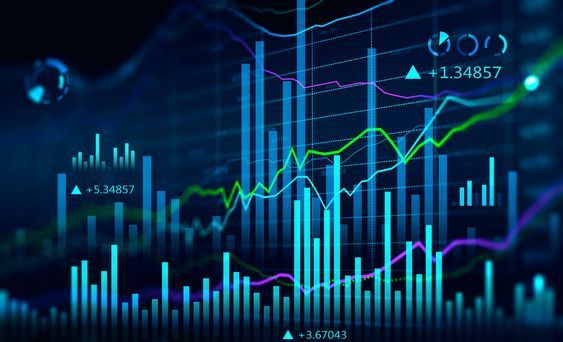Meta Description:
Discover how geopolitical tensions, wars, elections, and global events influence currency markets. Learn how traders can anticipate and react to political risks in forex trading.
Introduction
The forex market doesn’t just respond to charts and indicators—it responds to the world. Geopolitical events such as wars, elections, trade disputes, and diplomatic tensions can send shockwaves through global currency markets. For traders, political developments can create both risks and opportunities.
This article explores how geopolitical events affect currency values, how markets typically react, and what strategies you can use to navigate political uncertainty in your forex trading.
What Are Geopolitical Events?
Geopolitical events refer to major political, economic, or military developments that affect global relations and stability. These include:
- Wars and military conflicts
- National elections
- Terrorist attacks
- Trade wars or tariffs
- Sanctions and embargoes
- Diplomatic tensions between major powers
These events can influence investor sentiment, impact economic performance, and cause rapid shifts in currency values.
How Geopolitical Events Affect Forex Markets
Forex markets react quickly to uncertainty. Here’s how geopolitical events typically influence currency movements:
1. Risk Aversion and Safe-Haven Flows
During periods of political turmoil or conflict, traders often flee risky assets and seek safer ones. This is known as “risk-off” behavior.
Safe-haven currencies include:
- US Dollar (USD)
- Swiss Franc (CHF)
- Japanese Yen (JPY)
Example:
If a war breaks out in Europe, investors may shift from the Euro (EUR) to the US Dollar or Yen, causing the EUR to drop.
2. Impact on Local Currencies
Currencies of countries directly involved in political unrest or war often experience a sharp decline due to:
- Economic instability
- Reduced investor confidence
- Capital outflows
Example:
During the 2022 Russia-Ukraine conflict, the Russian Ruble initially collapsed as sanctions and uncertainty shook investor confidence.
3. Trade Wars and Tariffs
When nations impose tariffs or restrict trade, their currencies often become volatile.
Example:
During the US-China trade war (2018–2019), the Chinese Yuan (CNY) faced downward pressure while the USD also experienced volatility due to uncertainty.
4. Elections and Political Change
Major elections, especially in large economies, can shift forex markets depending on:
- The likely economic policies of the winner
- Market confidence in the leadership
- Fiscal and monetary outlook
Example:
The 2016 Brexit vote caused the British Pound (GBP) to fall sharply, as traders priced in economic uncertainty related to leaving the EU.
How to Trade Geopolitical Events
Trading political events can be tricky but rewarding. Here’s how to approach it:
1. Follow the News Closely
Use real-time news sources, alerts, and geopolitical calendars to stay informed. Timing is crucial in fast-moving political markets.
2. Understand Market Sentiment
Use tools like the VIX index, currency strength meters, and news sentiment trackers to gauge overall market fear or optimism.
3. Avoid Overexposure
During political crises, currencies can become extremely volatile. Trade smaller lot sizes and use wider stop-losses to account for price swings.
4. Focus on Safe-Haven Strategies
During times of high political risk, consider focusing on safer trades such as:
- Long USD/JPY or USD/CHF
- Short emerging market currencies (e.g., TRY, ZAR)
Long-Term vs. Short-Term Impact
Not all geopolitical events are equal. Their impact can be:
- Short-term shocks: e.g., a surprise political speech or a one-day conflict
- Long-term trends: e.g., prolonged wars, regime change, or sanctions
Understanding the duration and scope of an event helps determine whether to scalp short-term moves or hold longer-term positions.
Examples of Geopolitical Forex Shocks
Brexit (2016):
- GBP fell over 10% overnight after the UK voted to leave the EU.
Russia-Ukraine War (2022):
- EUR and RUB declined as energy supplies were disrupted and sanctions were imposed.
US Presidential Elections:
- Major USD volatility, depending on the policies of candidates (e.g., fiscal stimulus, interest rate outlook).
Risk Management Tips
Geopolitical trading is inherently risky. Follow these risk management principles:
- Never risk more than 1-2% per trade
- Use stop-loss orders, especially during high-impact news
- Monitor for slippage during sudden news spikes
- Be cautious with high leverage
Conclusion
Geopolitical events are a powerful force in forex markets. Whether it’s an election, a war, or a diplomatic conflict, political developments can move currencies with little warning. While such events pose risks, they also offer unique trading opportunities. With solid preparation, a deep understanding of global affairs, and proper risk control, you can make geopolitical news work in your favor.
Internal Link Suggestion:
Check out: “Central Bank Policies and Their Effect on Currency Values”
External Resource Suggestion:
Stay up to date with political news on Reuters and Bloomberg


